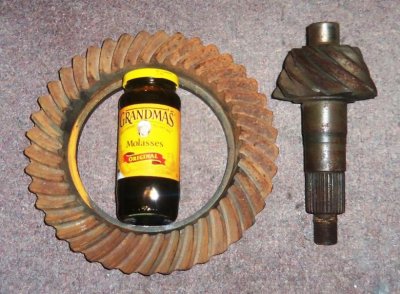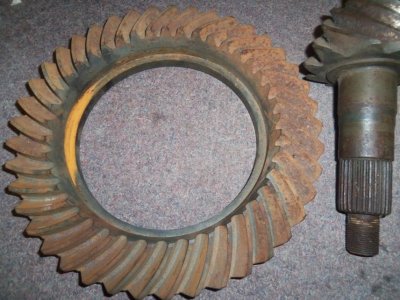How in living hell did I ever miss this thread??? Sorry to say f1shman left in a pist off rage, but at least he left something good behind. I guess I won't get to thank him for a great addition. Bummer.
Just as an aside:
Whatever rust removal method you choose (CLR, Barkeepers Friend, electrolysis, phosphoric acid, etc) the process will be accelerated if the bulk of the oxidation (and grease, oil, etc) has already been taken off.
I have found a good method to break up the thick scale - so that the final conversion happens faster.
Try putting the rusty object in the oven (electric only) and using the self-clean setting.
The high temperatures reached during the self-clean cycle will knock off almost all the scale. When you pull the object out there will be just a thin layer reaming. That will convert much quicker.
I've done this before, and even on my self clean gas oven. I usually do self clean once a year, and I usually do it on a cold as hell day, since the cycle runs so long and gets so hot, that it warms the house and if I'm spending that much gas to clean the oven I want to heat the house too and get something from it, and I do put any parts that would benefit on the oven rack too. Pretty much, self clean turns junk into thin film layers and just blows off with compressed air after a self clean cycle. It can get smokey in the house though.
Electric would be better though, so potential flammable chemicals don't catch fire from the gas burner flame. I've been keeping my eye out for someone throwing away an electric oven for a couple years now. Self clean would be even better.
A buddy of mine also cooks his connecting rods before shot peening them. He says it stress relieves them. You start the temp up real high, then lower just a bit, like say 50 degrees every 15-30 minutes. Personally, I don't think a backing oven gets hot enough for the process.









